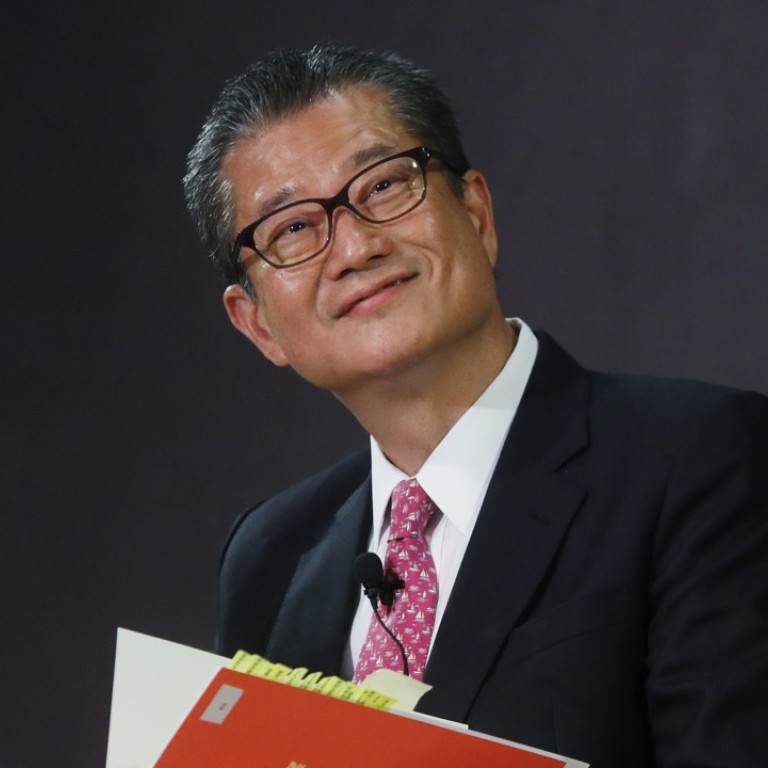
Cash handouts from budget should never be taken for granted
The decision to hand out up to HK$4,000 to 2.8 million people identified as not having directly benefited from the budget was necessary. But while the move has met expectations, there surely has to be a better way of meeting community needs
Give-and-take is a reality of politics. Financial Secretary Paul Chan Mo-po has been made aware of that by disenchanted citizens since he delivered the budget last month. He gave into their demands on Friday, handing out payments of up to HK$4,000 to 2.8 million people identified as not having directly benefited from the budget. The decision was necessary given that ignoring the pressure could have led to rejection of the plan in the Legislative Council, but there surely has to be a better way of meeting community needs.
Timing was everything with this year’s budget; it was handed down 11 days before a Legco by-election. Those standing and their political supporters sought to increase appeal to voters by calling on Chan to make greater use of the record HK$138 billion surplus.
They were also capitalising on a general sense of disappointment in the HK$50 billion spending plan, despite it being sound by targeting present needs and ensuring our city is on a stronger footing to confront potential challenges. Failure to adequately consider the poll and political expectations were an unfortunate oversight.
The budget hit the right places, increasing recurrent spending in areas including health and education, looking to long-term investment in economic development like nurturing innovative and creative activities and measures to improve lives, among them funding to boost services for the disabled.
The size of the surplus also gave room for rebates for taxpayers, extra allowances for the elderly and welfare recipients and HK$2,000 each for students in need. But so large an excess also raised hopes of “wealth sharing” and when it was not forthcoming as anticipated, there was bound to be an outcry, particularly from those who felt left out. These were mostly the people labelled as the “N-nothing class”, a group difficult to identify and help as they do not live in subsidised housing, pay little or no tax and are not government welfare recipients.
Young people, housewives, low-earners and retirees will benefit from Chan’s additional HK$11 billion package. He stressed that it was not a government about-face on its policy of being opposed to across-the-board cash handouts.
Nor should it be; the big budget surpluses of recent years have been the result of high tax revenue from the booming stock and property markets, which rise and fall in cycles, making predicting income difficult. A wise strategy is to plan for the future and not raise expectations by giving an annual windfall to every citizen.
The government has to overcome its mentality that handouts are to be shunned. There are times when they are necessary, as Chan found out. His targeted approach has met expectations, but such largesse should never be taken for granted.

